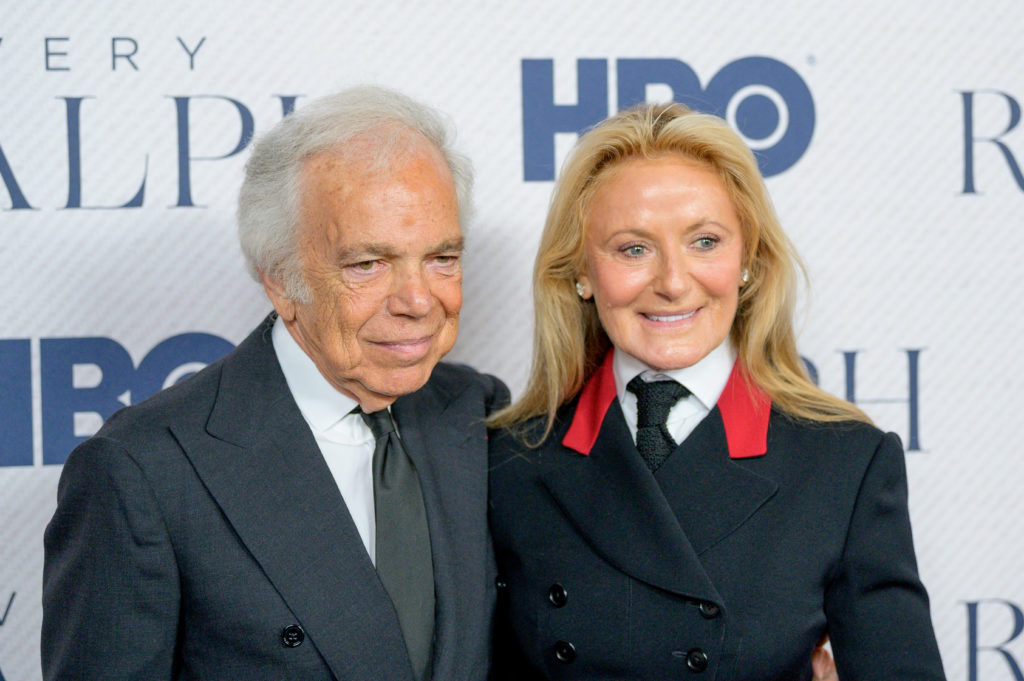Your Daily Phil: A new center digitizes Soviet-Jewish archives + How ‘verklempt’ and ‘chutzpah’ became everyday English
Good Thursday morning!
The Network of Jewish Human Services Agencies (NJHSA) received a three-year, $1.2 million grant from the United States Department of Agriculture that will enable 15 of the network’s 140 agencies to become employment services providers under the Supplemental Nutrition Assistance Program (SNAP), which is best known for food subsidies but also offers job training, NJHSA CEO Reuben Rotman told eJewishPhilanthropy.
“The need for more employment and training providers is directly connected with the significant increase in the number of SNAP recipients due to COVID and increased poverty rates,” Rotman said.
While network members regularly receive federal grants, this is the first one the network has secured, Rotman said. Jewish Vocational Services (JVS) in Boston, which already had a SNAP employment and training program that is well-regarded by the USDA, will serve as a consultant to the network on the grant.
USDA raised the average monthly SNAP benefit from$121 per person to $157 per person — an increase of $36 — starting Oct. 1, when new data on food prices and nutrition revealed that its benefits weren’t sufficient to purchase food for a healthy diet.
TIMELY EXHIBIT
L.A.’s Wende Museum opens a new center for Russian-speaking Jewry


Bill Aron
The recent death of Ida Nudel, the celebrated dissident who endured Siberian exile in order to immigrate to Israel from the Soviet Union, triggered both grief and anxiety among the dwindling community of dissident activists, said Alexander Smukler, a Soviet-born businessman who as a young man in the 1980s helped lead the refusenik movement of Jews refused permission to emigrate. The opening of the Robin Center for Russian-Speaking Jewry at the Wende Museum in Los Angeles last month has helped to ease survivors’ fears that their stories will die with them. “We are getting old, and more and more of us are departing from this world,” Smukler told eJewishPhilanthropy’s Helen Chernikoff. “We lost Nudel, so I think it’s the perfect timing.”
Bravery at the beach: Raised by secular Communist parents, Smukler first gained an inkling that Jewish culture existed in the Soviet Union when he glimpsed people wearing Stars of David on the beach in the summer of 1977. He ingratiated himself with them by playing chess — he was a highly skilled player — and read a contraband copy of Leon Uris’s Exodus. His request to emigrate denied, he became one of a small group called the Mashka, which coordinated Hebrew teaching and care of refuseniks, who were often ostracized and deprived of their livelihoods, and their families.
Saving samizdat: Smukler has contributed materials to the museum, and is a member of its Soviet Jewry Archives Advisory Committee. The center is the brainchild of Edward Robin, who with his wife, Peggy, is also funding it. The Wende is both an art museum and an archive. It will digitize the museum’s collection of samizdat — printed materials banned by the state — that are a primary source of information about the world of Soviet Jewry and the refusenik movement. “The refuseniks had lives,” Robin said. “And not all of them were public figures.”
The march on the mall: A former chairman of the National Conference on Soviet Jewry, Robin co-chaired Freedom Sunday for Soviet Jews, the 1987 march that drew 250,000 people to the National Mall in Washington, D.C. He and Peggy traveled to Moscow to help refuseniks by teaching language skills and giving them goods to sell on the black market. The stories of the American Jews who traveled to Russia on missions to help Soviet Jews have been much-told, Robin said, while the world knows less about the Soviet Jews who needed that help. “Everybody thinks their trip report is a document of historical importance, but that’s not true,” he said.
ON THE SCENE
Sounding a diverse tune at the opening of Dubai Expo’s Israeli Pavilion


Courtesy
A group of yarmulke-clad men in suits and women in elegant dresses waited excitedly just outside the Israeli Pavilion at Expo 2020 in Dubai. As noisy crowds entered the adjacent pavilions of India and Italy, the sounds of an Israeli band warming up to play for the pavilion’s opening rose above the din, writes Rebecca Anne Proctor, who was on the scene for Jewish Insider.
A different look: Visitors entered the main area of the pavilion by walking up a winding walkway built to emulate the form of sand dunes and shaded streets found throughout the Middle East. From a distance, the “dunes” look like they’ve been made from real sand, but a closer look revealed a concrete steel structure topped with sand-colored recycled leather. Like most of Expo 2020, the Israeli Pavilion, which opened last week, is about telling a country’s story, particularly how it sees its past and its future. Atop the zig-zagging mount was an open-steel structure where seven 15-meter-high LED screen gates showed videos of Israel’s cultural richness — from ancient ruins to contemporary dancers, small port towns and enchanting natural landscapes.
Making history: Dozens of blue and white balloons — a nod to the Israeli flag — filled the pavilion’s inner structure. Israel’s Minister of Tourism Yoel Razvozov delivered a few opening remarks, putting the event into perspective. “Many things are happening here for the first time. For the first time in history, the Expo fair is being held in an Arab country. It is also the first time there is an Israeli pavilion in a major fair on Arab soil. It is one of the most sound and robust steps toward cooperation between the United Arab Emirates and Israel in history.”
‘Toward Tomorrow’: The evening concluded on a contemporary note, with guests dancing to the catchy sounds of Hamalgezot, an Israeli band playing traditional Israeli music, followed by Israeli DJ Abass. As attendees celebrated the pavilion’s opening, the large, illuminated sign at the back of the pavilion’s main area glistened amidst the dazzling lights and moving images from the surrounding LED screens. In Aravit script, a font invented by typographer Liron Lavi Turkenich that merges Hebrew and Arabic characters, the sign spelled the phrase: “Towards Tomorrow.”
KVELLING
Pastrami, ‘verklempt’ and tshoot-spa: Non-Jews’ use of Jewish language in the United States


Shutterstock
“In 2015, when President Barack Obama awarded the Presidential Medal of Freedom to Barbra Streisand, he demonstrated a common American understanding that Yiddish is an important component of identity for many Jews. Streisand attended her first Broadway show at age 14, Obama reported, and thought she could easily play any role in that show. ‘That’s what’s called chutzpah,’ the president said,” writes Sarah Bunin Benor, a professor at Hebrew Union College – Jewish Institute of Religion, in an opinion piece for eJewishPhilanthropy.
Kibitz, bupkis, schmuck and more: “While Obama is renowned for his linguistic agility, he is far from the only Christian to use language that originated in Jewish communities and diffused to the broader American lexicon. Chutzpahspread in the 1970s through the media, the 1968 publication of The Joys of Yiddish, and the increasing prominence of Jews in the legal system. Verklempt was popularized in the 1990s, when non-Jewish comedian Mike Myers used it repeatedly on a ‘Saturday Night Live’ sketch, ‘Coffee Talk.’ Yiddish words like kibitz, bupkis and schmuck acquired a comedic valence and an association with New York through their use by second- and third-generation Jewish entertainers.”
Meshuggeneh ball soup: “Non-Jews who are ‘Jew-adjacent’ – spouses, coworkers, friends and neighbors of Jews – tend to use Jewish language in respectful ways. They might need some help with pronunciations or meanings of words, but they often use Hebrew and Yiddish words as a way of fitting into their families, workplaces or communities. A 1967 comedy sketch by Jerry Stiller and Anne Meara offers a humorous take on the challenges of non-Jews with Jewish partners learning Jewish language. Mary Elizabeth Doyle tells her boyfriend Hershey Horowitz that she plans to compliment his mother for making the ‘best meshuggeneh [meaning matzah] ball soup in the world’ and that she and Hershey will visit Israel for their honeymoon and ‘live on a knish [meaning kibbutz] for a couple of weeks.’”
REMAINING RELEVANT
How focusing on diversity and inclusion can save synagogues


iStock
“Twenty-one years ago, I was a young mother with an infant son. We had just moved to a new community and we were excited to join the local synagogue. We already knew some people in the congregation and there were other babies my son’s age. So as soon as we moved in, we submitted a membership application. A few days later, I received a call from the synagogue’s executive director. She very apologetically told me that she couldn’t accept our application to join as a family, but it would be fine if my same-sex partner and I joined as two separate individuals,” writes Aimee Close, director of synagogue leadership & innovation at United Synagogue of Conservative Judaism, in an opinion piece for eJewishPhilanthropy.
What we did: “Since we were regular shul-goers and had moved to the community primarily to join the synagogue, we never even considered going someplace else. We waited patiently, all the while continuing to attend services, while the rabbi worked with the lay leadership to educate the community and change the bylaws, which they eventually did… But what if we hadn’t already had friends in the congregation? What if we were strangers to the community, exploring our options rather than having already decided this would be our synagogue? I imagine most people in that situation would have taken no for an answer and found another spiritual community more welcoming to them.”
The ‘other’: “While many congregations have more inclusive membership policies than they did 21 years ago, a version of this story still plays out in many communities. Even for congregations that have inclusive membership policies, people who are not white, heterosexual, cis-gender, Ashkenazic Jews often feel like outsiders, never fully feeling a sense of belonging.”
Foster a sense of belonging: “Looking at these numbers, our mandate in the synagogue world is very clear. If synagogues are to remain relevant for our children and grandchildren, who will continue to come from more diverse racial and ethnic backgrounds, we must train our clergy, our lay leaders and our members not just to be welcoming, but to be fully inclusive and to foster a sense of belonging for all Jews and their families, regardless of race, gender identity, sexuality, disability, socioeconomic status or who they’re in a relationship with.”
Worthy Reads
Split Board: The last two family members on the board of Pathfinder International, the global reproductive health charity founded by an heir to the Procter & Gamble fortune, have resigned, citing both the organization’s failure to reckon with its founder’s legacy as a promoter of eugenics and concerns about the organization’s management, reports Colin Woodard in the Portland Press-Herald. Julia Kahrl and Walter Gamble, children of reproductive rights activist, eugenics proponent and businessman Dr. Clarence Gamble, believe Pathfinder should review and release its archives in order to expose the full extent of their father’s beliefs, but board chair Roslyn Watson said such information could be exploited by Pathfinder’s ideological opponents. “Spending the majority of our time trying to protect ourselves from the raw materials out in the international sphere wouldn’t serve the organization and its mission,” Watson said. [PortlandPressHerald]
Development Goals: “Change or die”: It sounds dramatic, but it’s actually a very simple process of shifting one’s mindset to believe that change is possible, even when it seems very difficult, reflects Melissa Spas in Insights, the newsletter of the Lake Institute on Faith & Giving. Organizations that have achieved this mindset understand that “development” is about more than raising money — it’s an ongoing process that emphasizes an open culture, a shared vision, feedback and assessment and a willingness to experiment and take risks. “Development doesn’t end. As a good Wesleyan (a Methodist denomination), I am compelled to remember that one never quite arrives at perfection, but must always remain on the journey,” Spas concludes. [Insights]
Time Value Of Money: Organizational leaders tend to not understand the most effective ways to inspire employee loyalty, which is an even more urgent problem at a time when as many as half of employees are looking for other jobs, write Nick Hobson, Jon M. Jachimowicz, Daniel Stein and Ashley Whillans in Harvard Business Review. Managers who want to retain the employees they have need to help them feel connected to their work, make the work less stressful and offer tangible incentives. “Reward employees with time in addition to money,” the authors state. “Working hours for college-educated professionals have been increasing for the last 30 years.” [HBR]
Community Comms
Be featured: Email us to inform the eJP readership of your upcoming event, job opening, or other communication.
Word on the Street
The Jeffrey M. Talpins Foundation and the Atlantic Council hosted officials from Israel and six Arab nations for a two-day multilateral conference in the UAE this week… Former Israeli Tourism Minister Asaf Zamir officially began his tenure as Israel’s consul general in New York yesterday… In partnership with Prizmah, the Wellness Institute is offering a workshop on family therapy for suicide prevention… Celia Clyne, one of the U.K.’s largest and longest-operating kosher caterers, is liquidating as a result of the pandemic… Kehillat Ramot Zion, a Masorti synagogue in the French Hill neighborhood of Jerusalem, saw unprecedented success — including contributions from local Israeli Arab families — with an online fundraising initiative to repair the synagogue’s leaky roof… The David and Lucile Packard Foundation awarded the U.S.-Mexico Border Philanthropy Partnership $2.5 million to significantly increase COVID-19 support for Hispanic and undocumented communities in the United States… Vassar College announced a $10 million gift from alumna Dede Thompson in support of a new building to house the admission and career education offices… A new report from Independent Sector finds that while nonprofits have contributed significantly to U.S. society and the economy in the face of the COVID-19 pandemic, the health of the sector is uneven in both impact and recovery…
Pic of the Day


Zug Productions for The Jewish Agency
In honor of Yom HaAliyah (Aliyah Day), new olim (immigrants) gathered at The Jewish Agency’s courtyard in Jerusalem Tuesday night for a celebratory dance party.
Birthdays


Roy Rochlin/Getty Images
Fashion designer, philanthropist and business executive, Ralph Lauren…
Emeritus professor of history at the University of London, Shula Eta Winokur Marks… Former MLB player and member of the 1969 World Champion New York Mets (1965-1972), Art Shamsky… Former vice chairman of the Federal Reserve (1994-1996), cofounder and a vice chairman of the Promontory Interfinancial Network and a Princeton professor, Alan Blinder… International trade attorney who held senior posts in the Office of the United States Trade Representative, Ambassador Ira Shapiro… Author, political scientist and resident scholar at the American Enterprise Institute, Norman Ornstein… President and founder of Extell Development Company, Gary Barnett… Fashion designer Isaac Mizrahi… Longtime CEO of Lakewood, N.J.’s Beth Medrash Govoha, the largest yeshiva in the U.S., Rabbi Aaron Kotler… Sports radio host, Jim Rome… SVP of international affairs for the Anti-Defamation League, Sharon Nazarian…. Managing partner and co-CEO for North America at Finsbury Glover Hering, Michael Feldman… President and cofounder of the R Street Institute, Eli Lehrer… Writer of “On Tech,” a New York Times newsletter, Shira Ovide… Program strategy director at Microsoft’s Defending Democracy, David Leichtman… Chief policy advisor for Colorado Gov. Jared Polis, Eve S. Lieberman… Independent consultant, Chana Yemini… Actress and singer, Ariela Barer… Defenseman for the NHL’s Vancouver Canucks, he is the son of hockey star Ellen Weinberg-Hughes, Quinn Hughes… Entrepreneur and sneaker reseller, known as Benjamin Kickz or the Sneaker Don, Benjamin Kapelushnik… Marsha Grossman… Jason Epstein…
Email Editor@eJewishPhilanthropy.com to have your birthday included.








